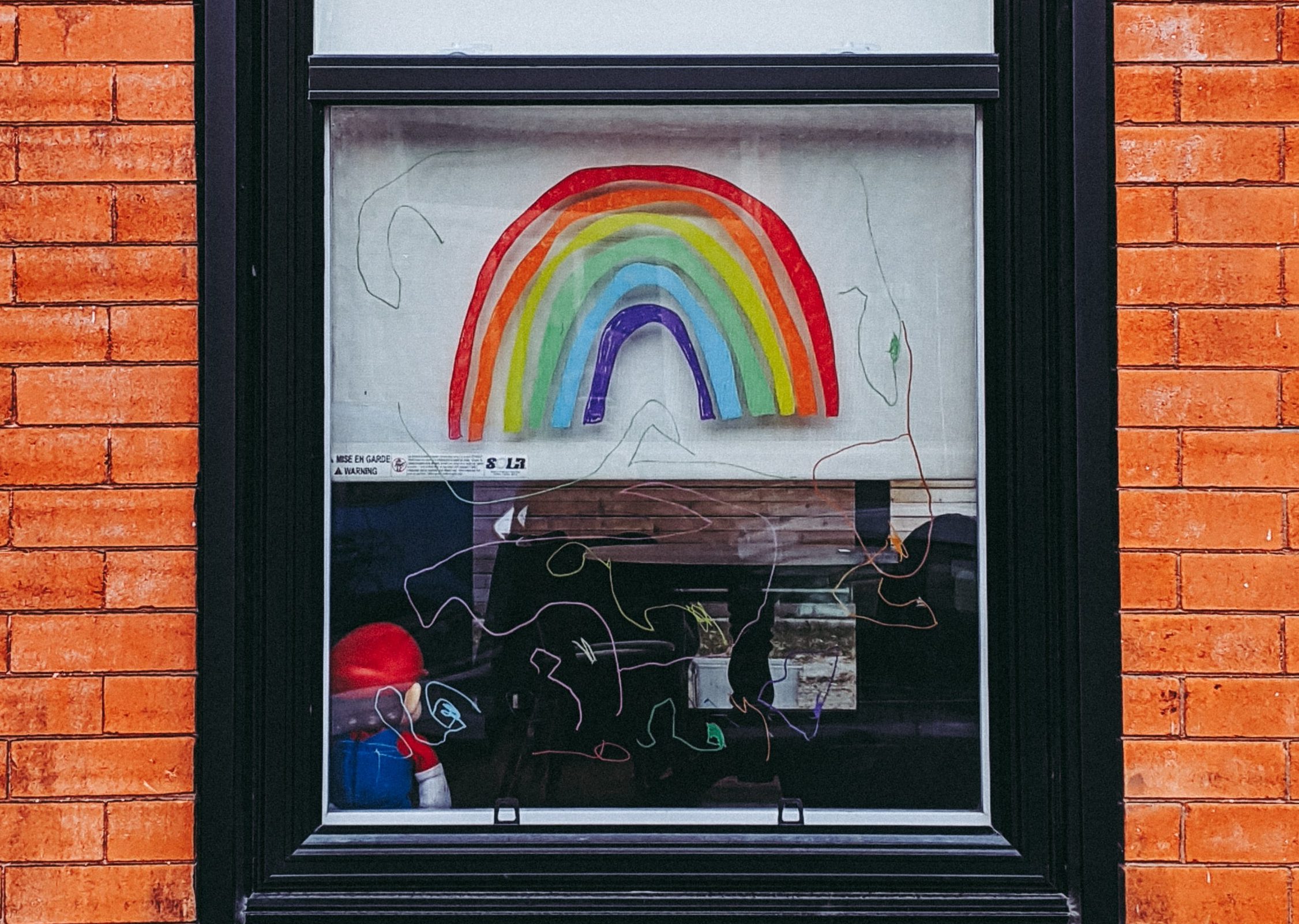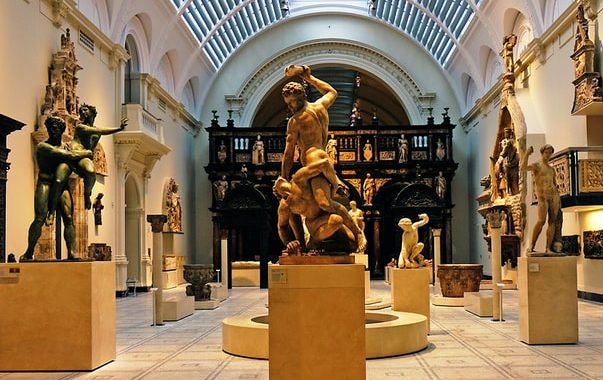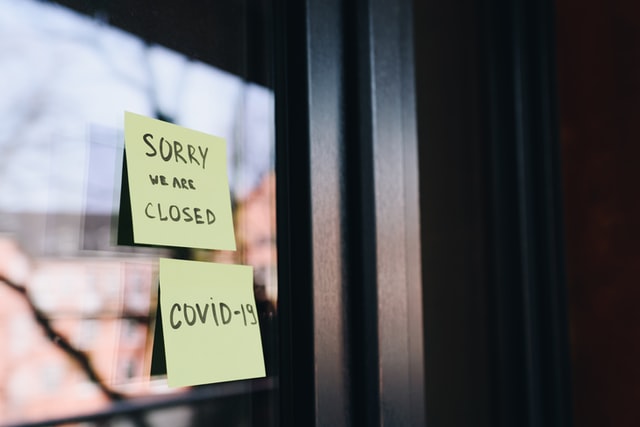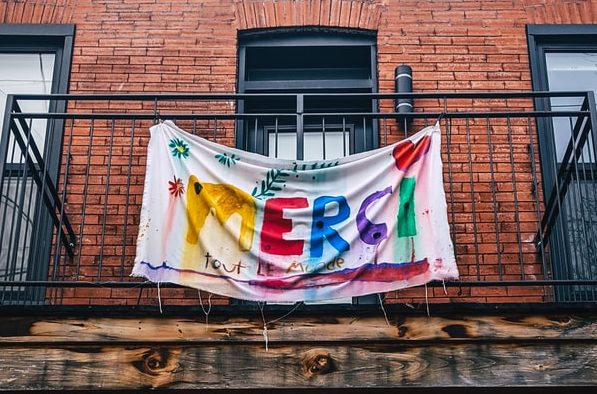Museums and COVID-19: 8 steps to support community resilience

Cultural and creative sectors are among the most affected by the current coronavirus (COVID-19) crisis, and museums are no exception. We acknowledge the manifold challenges faced by museums and museum professionals during this time and urge policy- and decision-makers to rapidly allocate relief funds to ensure the sustainability of museums. In that regard, ICOM published a statement that is now available on our website.
We are closely monitoring the impact of the crisis on the museum sector and applaud the creative solutions put in place by museums across the world to reach their audiences and continue engaging with their diverse communities. We are aware that this is not simply a matter of keeping our institutions alive, but also of mobilising their efforts and capacities to support community resilience and an effective recovery.
While working together with our partner organisations, we are seeking concrete ways in which museums and governments at all levels (local, regional, national) can collaborate to ensure that museums remain high on policy-makers’ agendas.
We would also like:
- to provide suggestions for actions that museums and museum professionals can take to support community resilience during and after the COVID-19 crisis;
- to provide examples of museums’ initiatives and useful resources within the current context.
Find out more examples and download the full document
1. Secure your own safety and well-being first
The security of your museum and the safety and well-being of your staff should be your top priority. You need them as much as they need you to get through this difficult time, for your organisation’s recovery, and for building resilience, now and after the crisis. Following the recommendations of governmental and health institutions (e.g. the World Health Organisation) is key.
In the meantime, listen to your staff and beware of what they need in terms of health, safety, and working conditions (e.g. resources, tools, materials). Some of them may need special accommodations to be able to keep working (from home or onsite) and protect their health and well-being and that of their loved ones. If some staff members cannot keep working under the new conditions, talk to them about possible ways to redistribute work or identify innovative and creative tasks that would be useful to your museum, or even consider allowing volunteer work during work hours (if legal and safety conditions allow it).
Be aware that you may not always know your staff members’ specific situations (e.g. regarding their health, housing, or family) due to privacy protection laws and other protective measures. They may have specific needs during the current crisis, so it may be preferable not to impose generic solutions that may not be appropriate for everyone, as they may put your staff in an uncomfortable position. Remember that they do not have to disclose their personal information, but it is the duty of all of us to consider that people around us may have specific needs.
Dedicate time and space (e.g. online, on the phone) during working hours for teams to adapt to the situation, talk to and support each other, while exploring solutions together.
Keep yourself updated on the situation, globally and in the museum sector:
Contact your ICOM National Committee to find support and talk to your peers.
The American Alliance of Museums published a webpage entitled COVID-19 Resources & Information for the Museum Field as well as an article explaining how to use scenarios to plan your museum’s COVID-19 response .
The Museums Association has published a number of articles, including on how museums are managing staff during the crisis .
Ethical guidelines should be followed even during these difficult times:
The ICOM Code of Ethics for Museums is a reference text setting standards for the practice of museum professionals.
Contact ICOM’s newest International Committee, IC Ethics , to discuss any ethical issues that may arise during this time.
2. Try to focus on what you are doing best and seek alternative ways of doing it; try new things and revisit traditional ways of doing things
Continue doing what you think is important:
- Some of your activities may be essential to continue during this time. If all health and safety conditions are met, try to keep them going;
- Seek out new ways to continue conducting activities that can no longer be performed in these the new circumstances (e.g. turn family workshops into online tutorials or live events).
Times of change, whether bad or good, lead to new experiences and trying new things. In the media, we have seen many articles encouraging people who are staying at home to try to learn new things, improve on their usual routines, or create new, healthy habits (like cooking more or exercising indoors). This could also apply to your professional activities. Since your plans and habits have been disrupted, why not seek out new ways of working?
Of course, some people are facing professional, personal, and emotional overload, which makes it difficult for them to try to innovate, as they must focus on their basic needs first. The idea is not to create pressure to innovate on top of all the other challenges, but when possible, try to find new approaches that may lessen your workload or efforts by exploring new tools and revisiting traditional ones.
Try to diversify the communication tools and channels you use to reach your audience. Why not also reconsider your accessibility standards and procedures? Currently, many museums are putting an impressive amount of effort into their digital content. These initiatives are valued by a large audience, as reflected by the sharp increase in the number of website visitors. However, do not forget that some groups may not have access to or be familiar with digital platforms. If relevant to your community and your museum, help to develop digital literacy.
You can find many examples online of how museums are adapting their activities to keep in touch with their communities:
Read ICOM’s newest articles on how to reach – and engage – your public remotely and how to ensure digital inclusion in museums’ online activities.
The Palestinian Museum launched its ‘Museum from Home – Palestine Perseveres’ campaign to provide cultural and educational content for all ages through its online platform (content in Arabic with summaries in English).
The Ethnographic Museum of Istria, in Croatia, put the content of its exhibition What Are You Afraid Of? Fear In Our Everyday Life online, noting that it is now ‘unfortunately more relevant than we would expect’. Similarly, the Israel Museum has offered a new video of its exhibition Seated in Seclusion, which has taken on new meaning now that billions of people are confined at home.
The Te Papa Museum created The Little Page of Calm on its website to provide content supporting well-being.
NEMO published the results of its survey and a collection of examples of museum initiatives in Europe.

3. Monitor developments and changing societal needs; listen to your communities and determine how you can help
Try to understand the current situation and its impact on society and especially the most vulnerable community groups in your specific context. For instance, we have seen that those hit hardest by the current crisis are the homeless, women at risk of domestic violence, children with difficult access to education, migrants, refugees, and minorities experiencing increased discrimination and xenophobia. As more and more companies undertake major layoffs, the unemployed are also more vulnerable. Remember that health workers are also among those under extreme pressure.
Use every means at your disposal to identify the needs of your community:
- Stay in touch with your local or regional government and social and health services;
- Track data, statistics, and current societal needs and demands;
- Keep in touch with your communities (through representatives) whenever possible, to hear directly from them about their most pressing needs;
- Keep the UN Sustainable Development Goals in mind. They address the global challenges to achieving a better and more sustainable future for all, so they can be a powerful source of inspiration;
- Identify your museum’s strengths and unique characteristics in relation to these needs and brainstorm about how you can respond to one or more of them.
You can be innovative and try new things, but sometimes, solutions can also be very simple, like using your existing social media accounts to raise awareness of health prevention measures or the dangers of spreading fake news.
Check out these inspiring examples of how you can support the healthcare system:
The Museum für Naturkunde in Berlin is monitoring the outbreak and providing useful links and information to the public through its website.
Museums and heritage institutions in Normandy, France are donating their masks to health professionals. Check out this Facebook post to see what they are doing.
Curators Without Borders is offering open-source templates for making face masks from readily available materials. Check out its instructions if you would like to make and distribute masks in your community.
Consider the human rights dimension of the outbreak and monitor other museums’ responses to protecting vulnerable groups:
Stay informed of the human rights dimension of the current COVID-19 response by following Human Rights Watch.
The Museum of Homelessness in the UK has been mobilising volunteers through its website to provide food and care packages to the homeless.
Check out the social media campaign from Museo Memoria y Tolerancia, in Mexico, to support human rights (on racism, the right to health, housing, decent work, social security , and domestic violence) in times of pandemic.
Seek out guidance and inspiration from other sectors:
The United Nations Development Programme (UNDP) published Guidelines for Community Participation in Disaster Recovery.
4. Remember that you are not alone; keep in close contact with partners, collaborators and community initiatives
Remember that you are not alone and that you should not have to face these new and unprecedented challenges alone. Get in touch with colleagues, stay connected to professional networks, and share information about your successes, challenges, and how you have adapted.
Build or revitalise partnerships and solidarity with others who are also trying to offer solutions and benefit from their co-operation. Cross-sectoral partnerships with institutions or NGOs from non-cultural sectors and community initiatives could help you to find new ways to support community resilience. Many volunteers and institutions like yours are working hard to find solutions and help society, with the aim of being as useful as possible. Some institutions have created intra- or inter-organisational task forces to foster innovative actions. Consider if that could work for you!
Read the ICOM-OECD guide offering new and innovative ways to develop cross-sectoral partnerships and providing best practices for museums to maximise their social impact by co-operating with non-cultural sectors. You can also use the guide to seek out support from your local and regional governments. Cultural funding may be severely impacted by the current crisis, but by adapting their activities to respond to the most pressing issues, especially those related to health, well-being, and justice, museums should be able to benefit from other sources of support.
See how others are joining forces to stay relevant and provide a rapid response to current issues and needs through empowering partnerships:
The Ministry of Culture in Argentina launched a new call for its Points of Culture programme, which provides financial and technical support for the implementation of community cultural projects. With this new call, the ministry is trying to mitigate the social and economic effects of the coronavirus pandemic on the cultural sector.
ART Power HK is an online platform that has invited and encouraged all organisations in Hong Kong’s art community (e.g. galleries, museums, and other art organisations) to get involved in their campaign to keep the Hong Kong art scene alive and attractive after the crisis.
Explore these guidelines and reports that may be of help in building and/or strengthening partnerships to increase your social impact:
The ICOM-OECD Guide for Local Governments, Communities and Museums is a roadmap for local governments, museums, and museum professionals on how to jointly define a local development agenda that promotes a more sustainable future.
Read the Voices of Culture brainstorming report, Social Inclusion: Partnering with Other Sectors , published in October 2018, which offers a list of ‘critical success factors as well as obstacles, and ultimately gives recommendations on how to improve the partnerships between the cultural and other sectors’.

5. Learn from the past
You can learn how others coped with similar situations in the past, even if the scales and contexts of their experiences may vary. Look for available documentation and remember that there are many colleagues out there willing to share their knowledge with you. Talk to them, read, and share these experiences with your network!
This is the time to develop more empathy and solidarity. Learn from other museums and organisations (e.g. libraries, archives, sites) with experience in disaster risk management and resilience. Initiatives aimed at supporting vulnerable groups and addressing difficult issues can also benefit from the experience of museums that address difficult and controversial topics such as human or animal rights, protests and marches, conflicts, immigration, the homeless, LGBTIQ+ issues, HIV/AIDS, domestic violence, or indigenous femicide.
Solidarity, empathy, and resilience are themes that have been studied and documented for years by other fields such as psychology and sociology, which could inspire our communities and help them better understand their own reactions and group behaviours.
Museums in times of crisis:
Watch the ICOM Kyoto Plenary Session on Museums in Times of Disaster , where Alejandra Peña Gutiérrez’s speech on Puerto Rico’s experience after Hurricane Maria showed how museums can help strengthen community resilience and support recovery.
The National Museum of Australia in Canberra has launched a digital initiative to provide a national platform for grassroots storytelling and honour front-line emergency workers as part of a wider documentary collecting and community outreach program dedicated to the summer bushfire crisis.
Museums tackling difficult, sensitive, contested issues:
Check out the 2018 issue of Museum International, ‘Museums and Contested Histories’, showing examples of how museums can tackle current societal issues with contested or difficult nature.
6. Consider the possibility of rapid response collecting and documenting the crisis and its impact
Documenting and exhibiting the crisis, its impact, and the various ways people are coping with trauma may enrich your collections and give them a new meaning, while also preserving knowledge and memories for future generations. See if existing strategies of contemporary and rapid response collecting (e.g. collecting new objects and/or digital materials and personal testimonies through oral history work) could be used without harming the safety of your staff and others or compromising your more demanding responsibilities.
Mapping and visualising current experiences or recontextualising your collections by developing new and creative platforms with the help of new acquisitions could be an effective way to engage with your communities. It may help them to better cope with trauma by sharing their worries, thoughts, needs, and emotions.
Whatever the type or size of your museum, if it is in line with your mission, there may be things to document and/or collect (e.g. new art around COVID-19, difficulties faced by the homeless, the impact on the environment, new urban landscapes, and the ways cities and communities are affected by the crisis).
Documentation of the crisis and online exhibitions:
The Museo Etnográfico Juan B. Ambrosetti in Argentina organised the collective exhibition ExpoCuarentena with objects being used by its community during the crisis.
The Canadian Museum for Human Rights is collecting videos and organising an online exhibition of personal stories about COVID-19.
Museums in the state of Colorado, in the US, are collecting testimonials and inviting their communities to share their COVID-19 experiences, online or by phone, in order to document this moment in time.
The Museum Erding in Germany is collecting testimonials, objects, and photographs to document life in the time of the coronavirus and how it is affecting its community.
Guidelines and ethical considerations:
If you have a similar project or want to explore how to start one, consult the documents developed by COMCOL (ICOM’s International Committee for Collecting) and read their call here.
The Museums Association also published a statement on the ethics of contemporary collecting in the time of COVID-19.
7. Capitalise on the experience
While many museums are still in the midst of the crisis, some are starting to plan their reopening. This may be the time to reflect on what your institution and staff have gone (or are still going) through. You may also consider exploring ways to encourage your community to do the same.
Dedicate some time to reflecting on what was different between the crisis and ‘business as usual’. Has this experience changed your priorities, as a professional and as an institution?
Have you (re)discovered new strengths or developed new skills in your institution and among your staff during this period? Have your attempts been successful? Were there any failed attempts that could be just as useful as the successful ones? Have you experienced difficulties? Any good moments of solidarity or creativity?
Are there things that you would like to integrate into your new way of ‘normal’ working? (It could be a new practise or tool, something you learned from a success or a failure, a new mindset, or a change in your priorities.)
It is still too soon to know how the crisis will affect your community, staff, and institution in the mid- and long-term. However, remember that you can talk to peers who have already passed the height of the crisis in order to benefit from their experience, which may help you plan for the future. For instance, they may already be seeing if visitors feel uneasy with the idea of big gatherings and are avoiding visiting museums, even in a post-crisis situation.
Professional networks like ICOM can provide valuable help in sharing knowledge and experiences with colleagues from all over the world who are facing similar challenges.
8. Stay united and help us in our advocacy efforts
Remember that your sustainability is crucial for your contribution to the sustainability of this planet. The current COVD-19 crisis is not only a health crisis but also a development crisis. As museums and museum professionals, we all have an important role to play in building a more peaceful, equal, and sustainable future.
We invite all museums and museum professionals to keep up with our advocacy efforts, share our statements, and monitor the policy measures, relief funds, assistance opportunities, and advocacy campaigns that may help them get support. If you cannot find any of these either locally, regionally, or nationally, we are here to help.
Check out ICOM’s advocacy initiatives:
Read and share ICOM’s statement on the necessity of relief funds for museums during the COVID-19 crisis, as well as the UNESCO and partners’ statement, co-signed by ICOM, calling for turning the threat of COVID-19 into an opportunity for greater support for documentation.
Take the ICOM survey, Museums, museum professionals and COVID-19, which has been designed to gather information on how the ongoing outbreak is affecting the museum sector around the world.
Read the ICOM 2019 Resolution and President’s Statement on sustainability and watch the inspiring speakers from the Curating Sustainable Futures Through Museums session during the ICOM 25th General Conference in Kyoto, Japan in 2019.
Check out our National and International Committees as well as regional alliances, affiliated organisations, standing committees, and working groups, who are all here to help (ICOM Committees’ directory).
Let us know if you have an experience that would be of help to other museums and museum professionals in supporting community resilience during this difficult time!
Contact our Museums and Society Coordinators, Afşin Altaylı and Marie Claverie, with any questions or comments, at mas@icom.museum
